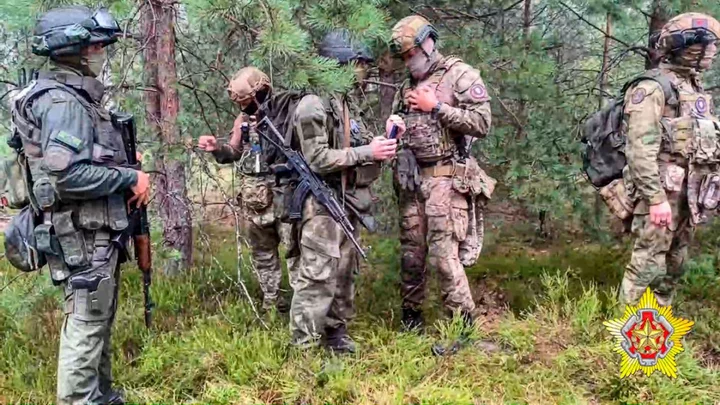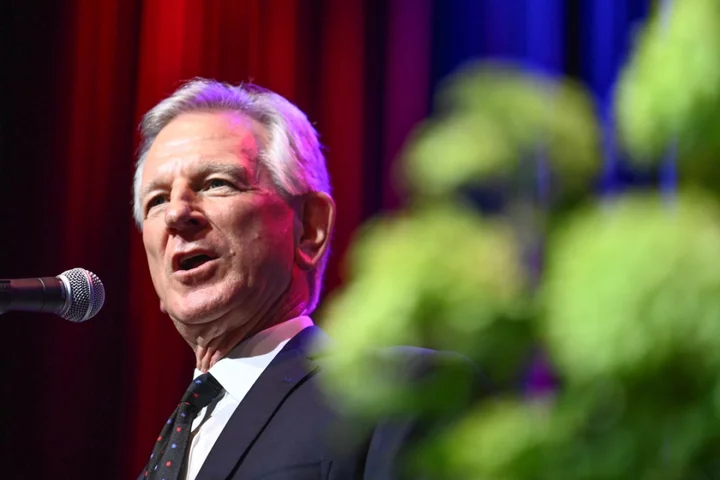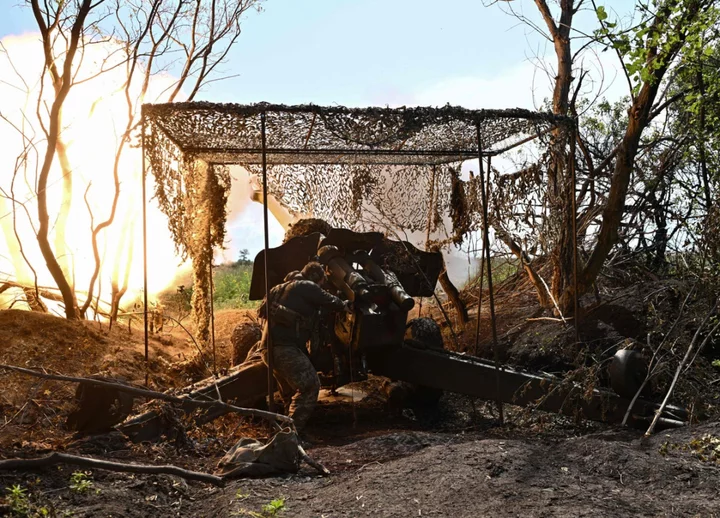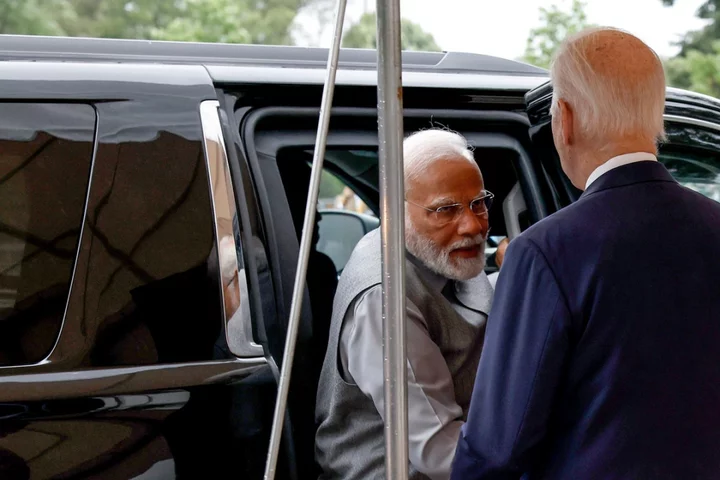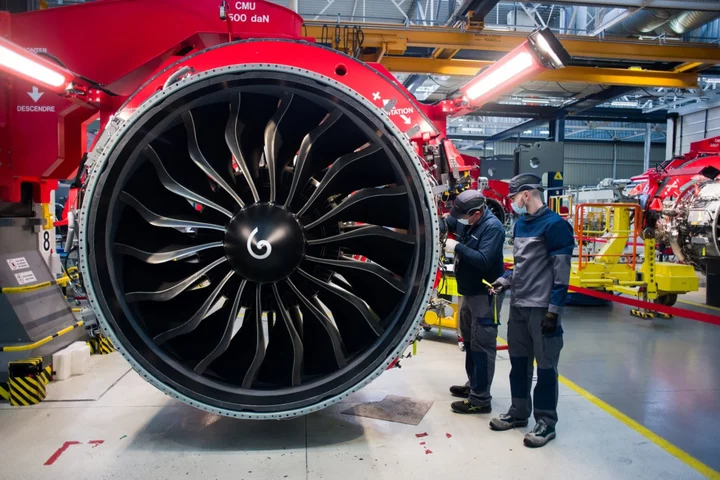Thousands of Wagner mercenaries have arrived in Belarus since the group’s failed mutiny against Moscow led by its founder Yevgeny Prigozhin – leading to Nato member Poland reinforcing its eastern border against the “potential threat” they pose.
Belarusian president Alexander Lukashenko welcomed Wagner forces into the country after brokering a deal between the Kremlin and Mr Prigozhin, which stopped the mercenaries’ march on Moscow about 125 miles from the capital. He and Russian president Vladimir Putin have spoken about the mercenaries on a number of occasions, including during two days of talks over the weekend and into Monday, the Kremlin said on Tuesday.
The Wagner chief called the mutiny a “march of justice” to oust the top military leaders. The mercenaries faced little resistance and downed at least six military helicopters and a command-post aircraft, killing a number of Russian troops.
The revolt posed the most serious threat to President Putin during his 23-year rule, eroding his authority and exposing the cracks in the military, and changing the direction of the Kremlin’s 16-month invasion of Ukraine.
Here’s a look at where we are now:
How many Wagner fighters are in Belarus, and where are they?
Between 3,450 and 3,650 soldiers have travelled to a camp close to Asipovichy, a town about 140 miles (230km) north of the Ukrainian border, according to Belaruski Hajun, an activist group that tracks troop movements within the country.
Satellite images show that about 700 vehicles, along with construction equipment, have also arrived in Wagner convoys to Belarus, Belaruski Hajun said.
Mr Prigozhin also registered a “real estate management company” in Belarus last week under the name Concord Management and Consulting in Belarus. Documents analysed by independent Belarusian media outlets showed that the company’s registered address was in the same village as the Wagner mercenary camp.
Why is Poland so concerned?
The bigger issue for Poland is that the Belarusian Defence Ministry has made clear over the last week or so that the mercenaries are providing training for Belarusian soldiers, including at training grounds close to the Polish border.
“Wagner fighters who have really been in the heat of combat are passing on valuable information and experience to our servicemen,” the Belarusian Defense Ministry said in a statement. One of the ranges is in Brest, about three miles (5km) from Poland’s eastern border.
Warsaw said it was ready for “various scenarios as the situation develops”, having started moving around 1,000 of its own troops towards the border earlier this month.
According to claims made in a post by a senior Wagner commander, known by his nom de guerre “Marx”, which was republished by Wagner’s Telegram channel, up to 10,000 fighters “have gone, or will go” to Belarus – although the accuracy of that statement is difficult to verify.
Poland’s Defence Ministry said the country’s borders were secure. In response to Warsaw reinforcing its border, the Kremlin tried to paint it as an “aggressive” move – despite Moscow’s invasion of Ukraine being the ultimate genesis of it.
The Belarusian interior minister, Ivan Kubrakov, met Wagner commanders at a training centre to draw up a “clear plan of action”, a statement said.
“In view of the difficult situation near the republic’s borders, it is especially important to be ready to respond to potential challenges and threats,” Mr Kubrakov said.
He was quoted as hailing the mercenaries’ “practical experience” following their months-long experience of combat in eastern Ukraine, notably in bloody battles such as those that have taken place around the eastern city of Bakhmut.
Would Wagner troops try to invade Poland?
It would be foolish. With Poland being a Nato member, crossing the border could bring Article 5 of the alliance’s treaty into play. It states that an attack on one member state is considered an attack on all members. Given Mr Putin’s talk about military action against Belarus being on a par with attacking Russia, Wagner forces heading into Poland is the last thing either Mr Putin or Nato needs.
However, that has not stopped the Belarusian leader, Mr Lukashenko, from stirring the pot. In a meeting with the Russian president on Sunday, Mr Lukashenko said that Wagner troops were “stressing [him] out” by calling for “an excursion” into Poland. He said that his government in Minsk was “controlling” the situation by keeping the group in the centre of the country.
“They are asking to go west ... to go on a trip to Warsaw ...” Mr Lukashenko told Mr Putin. “But of course, I am keeping them in central Belarus, like we agreed.”
It suits both Mr Putin and Mr Lukashenko to have Europe worry about its borders. It allows both men to keep talking tough on the international stage – and play to voters at home.
The remarks have largely been dismissed by experts, with the American Institute for the Study of War – which monitors the fighting in Ukraine – saying that Wagner troops there could not threaten Ukraine and Poland.
“There is no indication that Wagner fighters in Belarus have the heavy weaponry necessary to mount a serious offensive against Ukraine or Poland without significant rearmament,” the think tank said in a statement.
The deputy head of Ukraine’s Main Intelligence Directorate, Vadym Skibitsky, also said that there was no “direct threat” from Russian mercenaries in Belarus, but that Kyiv would be keeping a close eye on the Wagner fighters.
“Our assessment is very simple: today there is no direct threat [from Belarus], but we are ready. We are monitoring everything related to the so-called Wagner missile defence system,” he told journalists, according to the directorate’s Telegram channel.
Read MoreThe Body in the Woods | An Independent TV Original Documentary
The harrowing discovery at centre of The Independent’s new documentary
Extremist attacks wounded Paris. Here's why the city turned to the 2024 Olympics to heal
Mali's army and suspected Russia-linked mercenaries committed 'new atrocities,' rights group says
Monitoring group says thousands of Wagner mercenaries have arrived in Belarus since failed uprising

